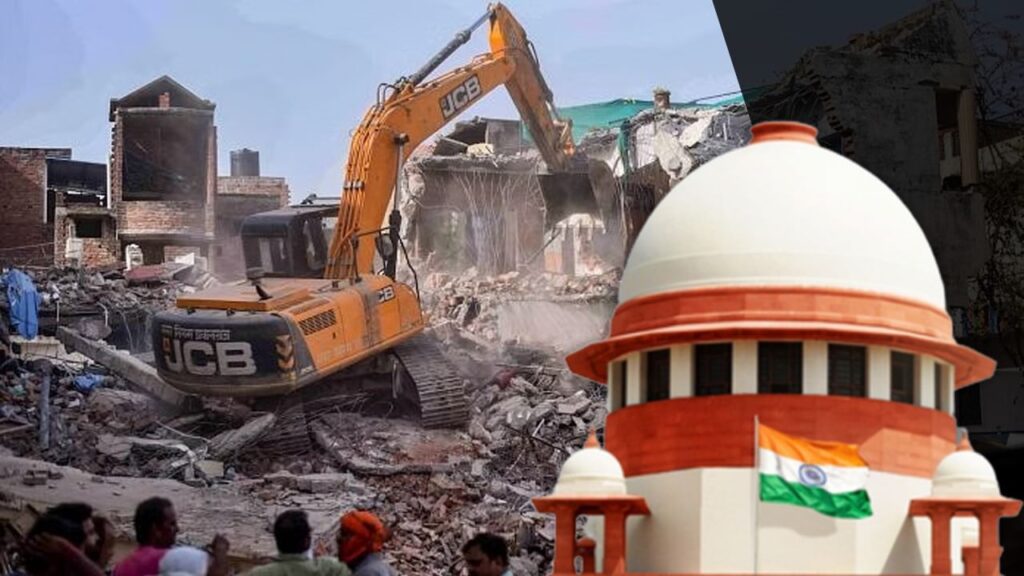Introduction
In recent developments across three Indian states, the controversial “bulldozer action” has resurfaced as a topic of legal scrutiny. Allegations have emerged against the governments of Uttar Pradesh, Madhya Pradesh, and Rajasthan for demolishing the homes of accused individuals using bulldozers. Following these incidents, the Jamiat Ulema-e-Hind has approached the Supreme Court, seeking a halt to these demolitions. The Supreme Court, under the bench led by Justice B.R. Gavai, is set to hear the matter on September 2.
Background of Bulldozer Action
The term “bulldozer action” has become synonymous with aggressive state measures against individuals accused of serious crimes. This method has garnered particular attention for allegedly targeting members of minority communities, raising significant concerns about justice and fairness in law enforcement.
Recent Incidents in Uttar Pradesh
In Uttar Pradesh, a notable incident involved the demolition of a bakery owned by Moid Khan, an accused in a sexual assault case involving a 12-year-old girl. Khan, who is also the local president of the Samajwadi Party, was swiftly arrested by police along with his associate, Raju Khan. The demolition raises questions about the legal framework governing such actions, especially considering the accused’s political affiliations.
Bullodozer Actions in Madhya Pradesh
Madhya Pradesh has seen a series of bulldozer actions as well. The local administration in Chhindwara demolished the home of Mohammed Nafees, a man accused in a rape case. Authorities justified the demolition by claiming the structure was illegally built on government land. Another significant incident in Chhatarpur involved the demolition of a property owned by Haji Shahzad after allegations of stone-pelting against a police station surfaced. This incident also attracted criticism from political figures, including a Congress member of the Rajya Sabha, Imran Pratapgarhi, highlighting the contentious nature of such state actions.
Rajasthan’s Response to Allegations
In August, Rajasthan also witnessed a bulldozer action following a violent incident involving a minor. In Udaipur, a student from a minority community was accused of fatally stabbing his classmate. The authorities responded by demolishing the house where the accused’s family resided, citing that it was on forest land. This action has intensified the debate about the legality and morality of such measures, particularly in cases involving minors.
Legal and Social Implications
The ongoing legal challenge in the Supreme Court reflects broader societal concerns about the principles of justice and human rights. Critics argue that bulldozer actions may violate constitutional rights and disproportionately target marginalized communities. The upcoming hearing will be crucial for setting a precedent regarding the use of state power in criminal justice.
Conclusion
The bulldozer action phenomenon raises critical issues surrounding due process and the protection of rights for all citizens, regardless of their backgrounds or allegations against them. As the Supreme Court prepares to review the legality of these demolitions, the nation watches closely, hoping for a decision that will uphold justice and equity.
